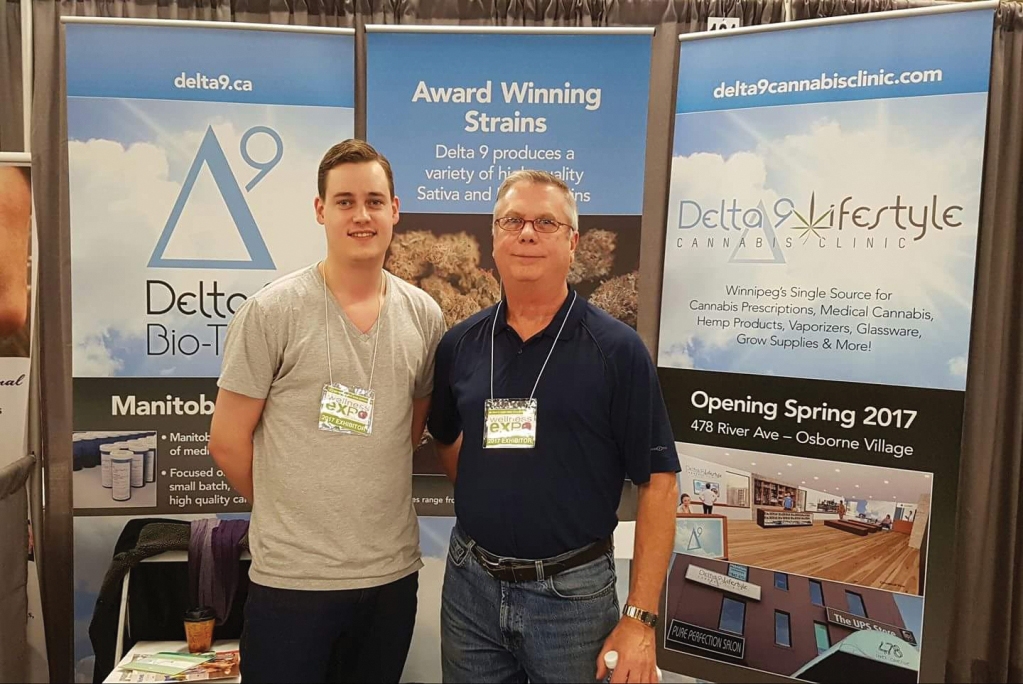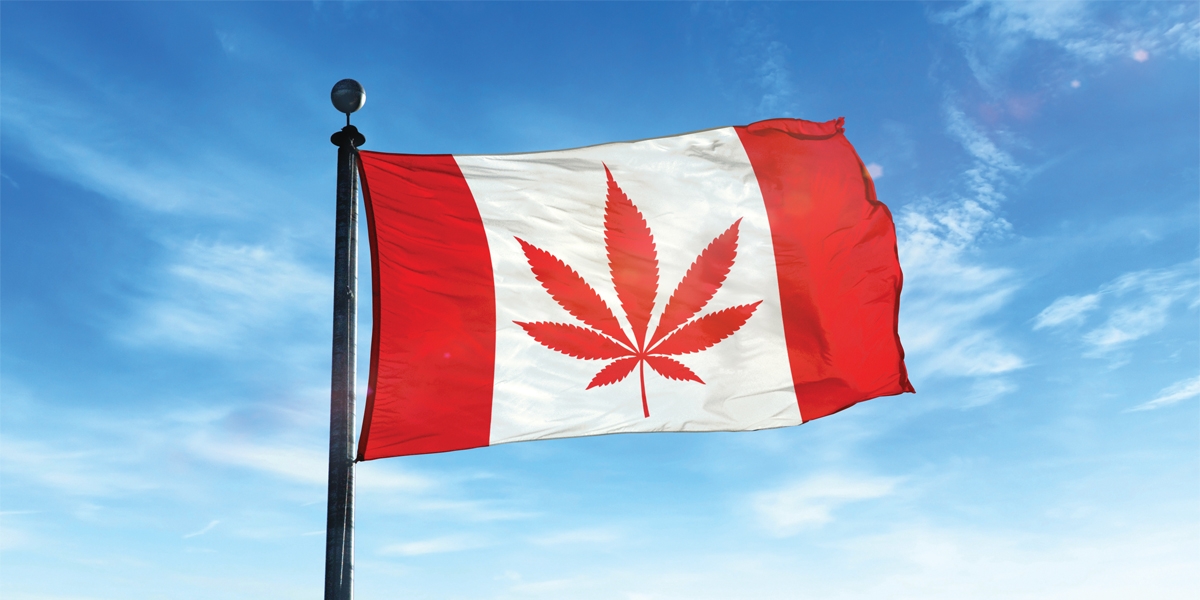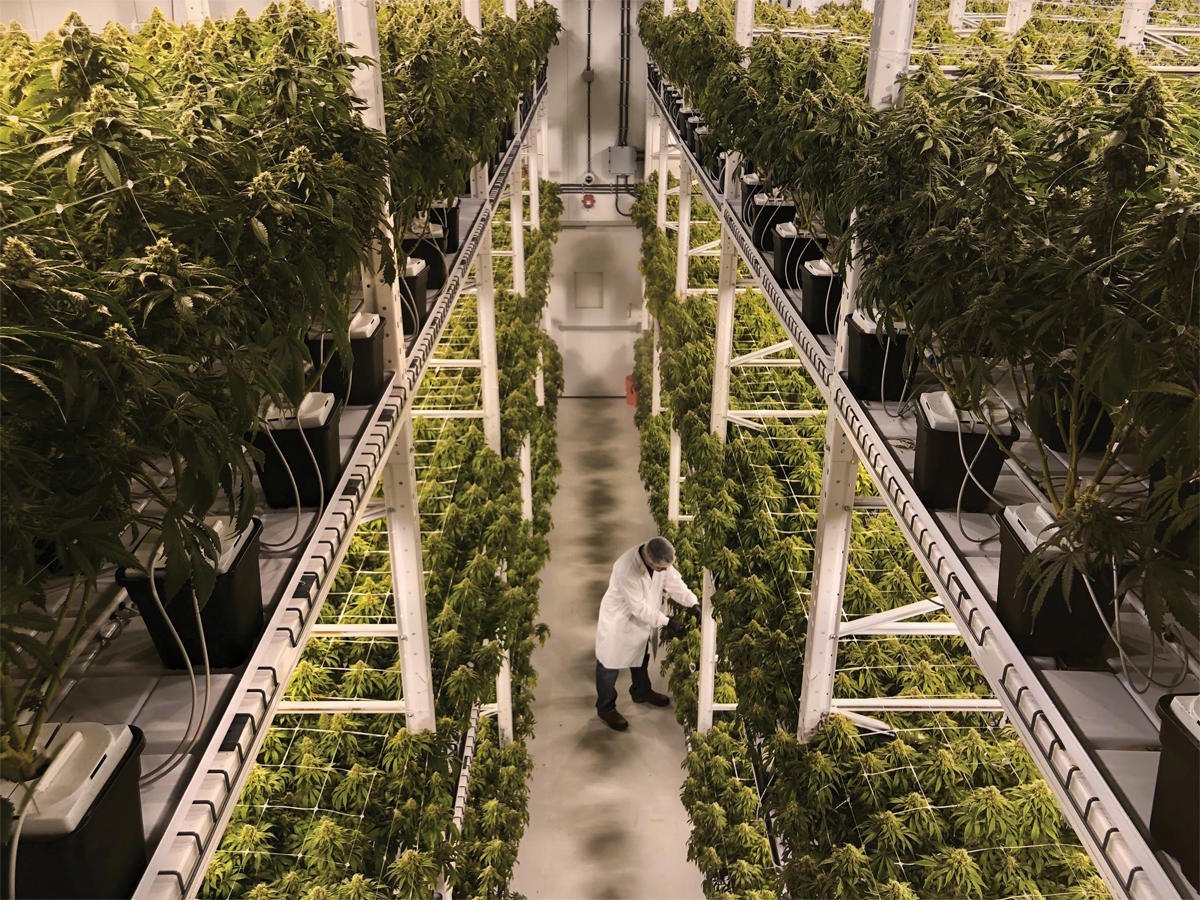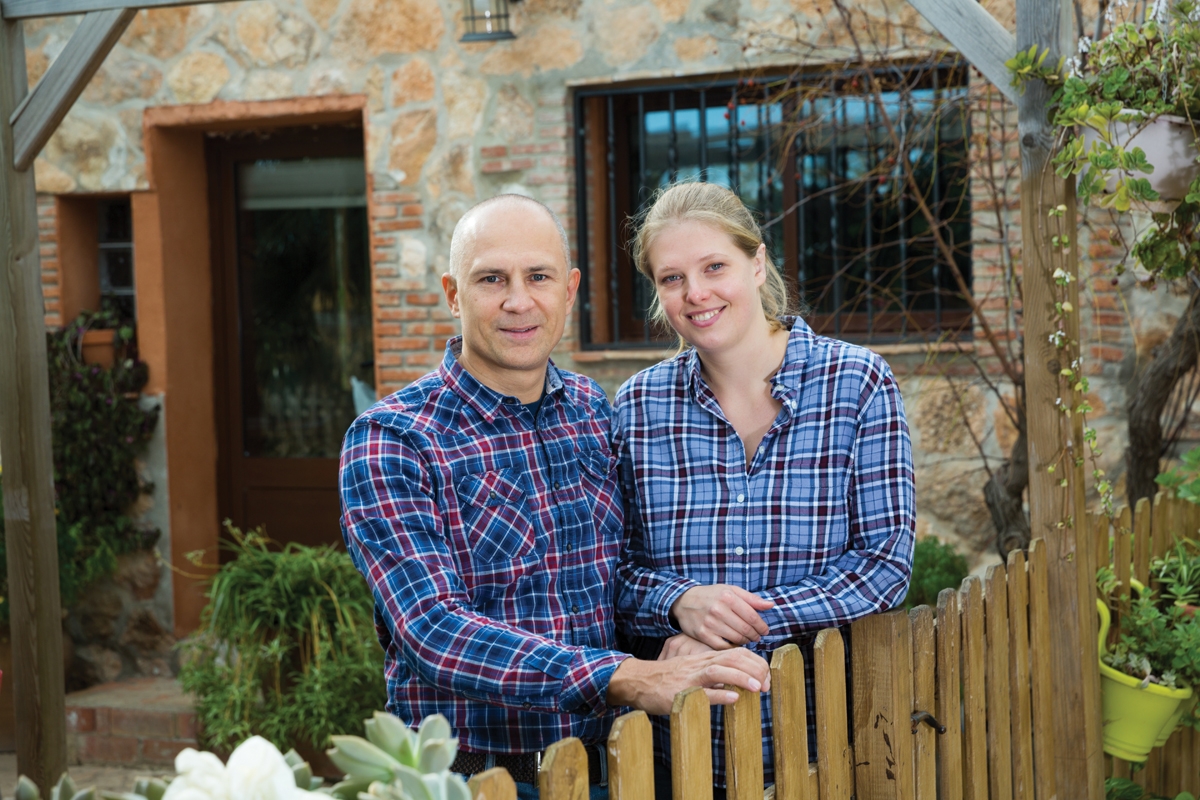
Looking forward from the cannabis front lines with Delta 9
Photos courtesy: Delta 9
Where were you the moment that cannabis became legal for recreational consumption? It’s a day that is going to be ingrained in our nation's history, and while many Canadians never thought that they would see the day come, there were those who have been waiting for that moment for nearly a decade.
Delta 9 was one of the first licensed producers of cannabis in Canada, and have been providing medical marijuana for patients since 2012. Back then, it was nearly impossible to imagine that we would see joints freely lit on front porches with the decade, but Bill and John Arbuthnot had two things that separated them from the competition; a passion for growing quality cannabis, and impeccable foresight.
This father and son team had been working with patients using cannabis for several years, carefully producing strains that aided with specific ailments. While John was studying business at the University of Manitoba, he devised a program that helped patients gain access to Health Canada’s Medical Marihuana Access Regulations program. Within five years, this once-obscure program would grant him and the newly founded Delta 9 corporation licenses to produce and distribute marijuana across the country, the 4th company to gain status as a Licensed Producer.
Arbuthnot is now the CEO and Director of Delta 9, and is aware that his young age stands out in the industry — though the ordained “Kid Cannabis” views his youth as a strength.
“To be one of the only CEOs in the core consumer demographic, I think it puts me in a position to uniquely contribute my opinion towards the product development side," says Arbuthnot.
With the freedom to grow cannabis came a swath of regulations, responsibilities, and a strict incentive to stick to the key core values that Arbuthnot outlined when he founded the company. “Think big, but think as a small family business,” says Arbuthnot. “It means becoming a responsible corporate citizen, it means being involved in and giving back to every community that we operate in.”
 These values include a commitment to creating small-batch, high quality cannabis for responsible use. In order to do this, Delta 9 decided to think differently and move in a new direction.
These values include a commitment to creating small-batch, high quality cannabis for responsible use. In order to do this, Delta 9 decided to think differently and move in a new direction.
“It really starts with our Delta 9 Grow Pods,” explains Arbuthnot. These are the platforms used by the company to hydroponically produce more than 60 strains of cannabis that they stock in their genetic seed bank. Each plant is carefully nurtured from seed to harvest, being hand trimmed to ensure that what is delivered to distributors is what they refer to as a “craft cannabis product.”
This focus on high quality standardization has successfully positioned Delta 9 as a leader in the premium category of the marijuana market. Arbuthnot believes strongly in this small-batch process, saying, “A big part of our strategy in what differentiates us from the competition is ensuring we aren’t looking at this product as a commodity, as some of the larger greenhouse players are, we are really looking at this as a consumer packaged good.”
Genetics and strain intellectual property play a huge role in staying at the vanguard of an industry full of competition, each claiming to have the ‘best’ product. With over 75 strains currently under production, Delta 9 understands that to stand out, they need to focus on individual attributes of plants, be it high yield, heightened potency, or even certain flavour profiles. By offering the most choice in features, they plan to stay at the top of connoisseur cannabis community minds.
The real challenge for companies like Delta 9 who have been operating for years as Licensed Producers, is transitioning from medical to recreational while remaining relevant to a totally new type of consumer. Instead of buying out of necessity, these customers have specific preferences and a wide selection of brands to choose from, and the same marketing tactics will not be as effective.
Arbuthnot says they have been preparing for the opening of this market since it was initially announced several years ago, and have taken steps to meet the massive demand while staying true to their foundational values. The implementation of two separate programs, one for medical and one for recreational use, will each seek out creative ways to retain their respective client bases.
“For us at Delta 9, what that means on the medical side is really making a concentrated push over the coming years to make our products more medical,” says Arbuthnot. “To look at the oils, the extracts, and the alternative drug delivery platforms from product development standpoint so we can compete in that segment.”
Having successfully obtained an oil extraction license, and partnering with NanoSphere Health Sciences to access their state-of-the-art delivery system for cannabinoids, and becoming a preferred supplier of Pharmasave, Delta 9 is evolving to meet the demands that modern medical patients that use cannabis will have.
As for the recreational market, Delta 9 plans to not only serve their craft cannabis products to consumers in plant form, but you may find yourself pouring one out in the near future. In the past, they partnered with Fort Garry Brewing Company to create a hemp beer that was sold in Manitoba called “Legal Lager” and was met with positive reviews. While the beer was solely alcoholic, Phase 2 of their partnership will move into the realm of a THC-infused drink.
While offering hip and delicious products to recreational consumers is a momentous step, Delta 9 makes equal progress to emphasize their commitment to remaining a responsible corporate citizen. Though they are a business that is seeing substantial growth, the wellbeing of customers always takes centre stage, and this is especially highlighted via their Compassionate Pricing programs.
The first of which is for patients who are on low-income salaries and disability pay, offering them access to a large discount on their purchase of medical cannabis strains. The second is available to all customers that purchase 30 grams or more will receive a discount on their order. Over the past three years, these programs in tandem have helped customers accessing medical cannabis save a collective $500,000 and will continue after legalization.
Having been a part of the industry since the beginning, Delta 9 has always been looking ahead. Seeing the potential for the medical market to grow from obscurity to assimilation was clever, but Arbuthnot believes that his vision to enter the mainstream goes far beyond. Production and distribution of cannabis is an undoubtedly profitable sector, but Arbuthnot feels that the migration to retail will be a telling chapter in their companies history.
“Vertical integration strategy has been at the forefront for us, it’s a strategy that not a lot of other producers have gone with,” says Arbuthnot. “We feel that there is real merit in that integration into retail, being able to control the messaging, the branding, and really, the consumer experience as we roll out across the country.”
The province of Manitoba recently granted Delta 9 permission to operate at least four retail stores, with more on the way: Arbuthnot says that they are ready to operate a dozen stores by 2019 if the opportunity becomes available.
As Canadians still come to terms with marijuana legalization, Delta 9 continues to seek out new ways to introduce their high quality cannabis products to a curious and excited audience.













